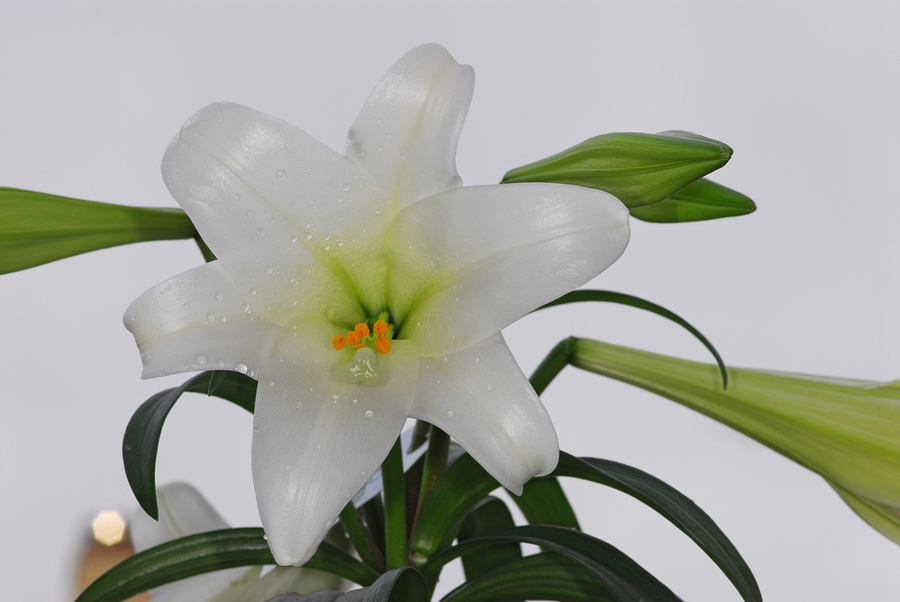Even if you’re getting tired of hearing about it, there are lots of cats owners out there who are unaware that Easter lilies — all lilies, actually — are deadly to their cats. Please make sure your friends and family get the word, like this Facebook reader’s mother-in-law needs to!
Q: Every year my mother-in-law sends us an Easter lily. I think she’s trying to kill our cat. Could you please print some information about how dangerous they are for cats so I can share it with her?
A: You are absolutely right! We don’t know why, but cats are highly sensitive to all parts of the lily: leaves, flowers, stems and possibly even the pollen and the water in which the flowers are placed. A cat who nibbles even a single petal or leaf of an Easter lily can go into severe kidney failure and die unless he receives aggressive treatment right away. That usually means a two- or three-day stay in the hospital receiving intravenous fluids and other supportive treatment to keep the kidneys functioning and flush the toxins out of his body. Even with extensive treatment, the prognosis is guarded. That all adds up to big bucks and lots of heartache!
Lilies of all kinds, not just Easter lilies, are popular ornamental plants that you can buy just about anywhere. It’s very common to see them in bouquets and flower arrangements. The Pet Poison Helpline says to beware of tiger lilies, day lilies, Asiatic hybrids, Japanese show lilies, rubrums, stargazers, red, Western and wood lilies and lilies of the valley.
Normally if people are having problems with cats chewing on ornamental plants, I advise them to keep the plants out of reach, but I don’t think that’s a safe enough method to prevent lily toxicity. If you are a cat lover or love someone who is, you should never allow lilies in your home or yard or send them as gifts, no matter how beautiful and fragrant they are.
Read this and more in this week’s Pet Connection — and if you have a question, email askpetconnection@gmail.com!


